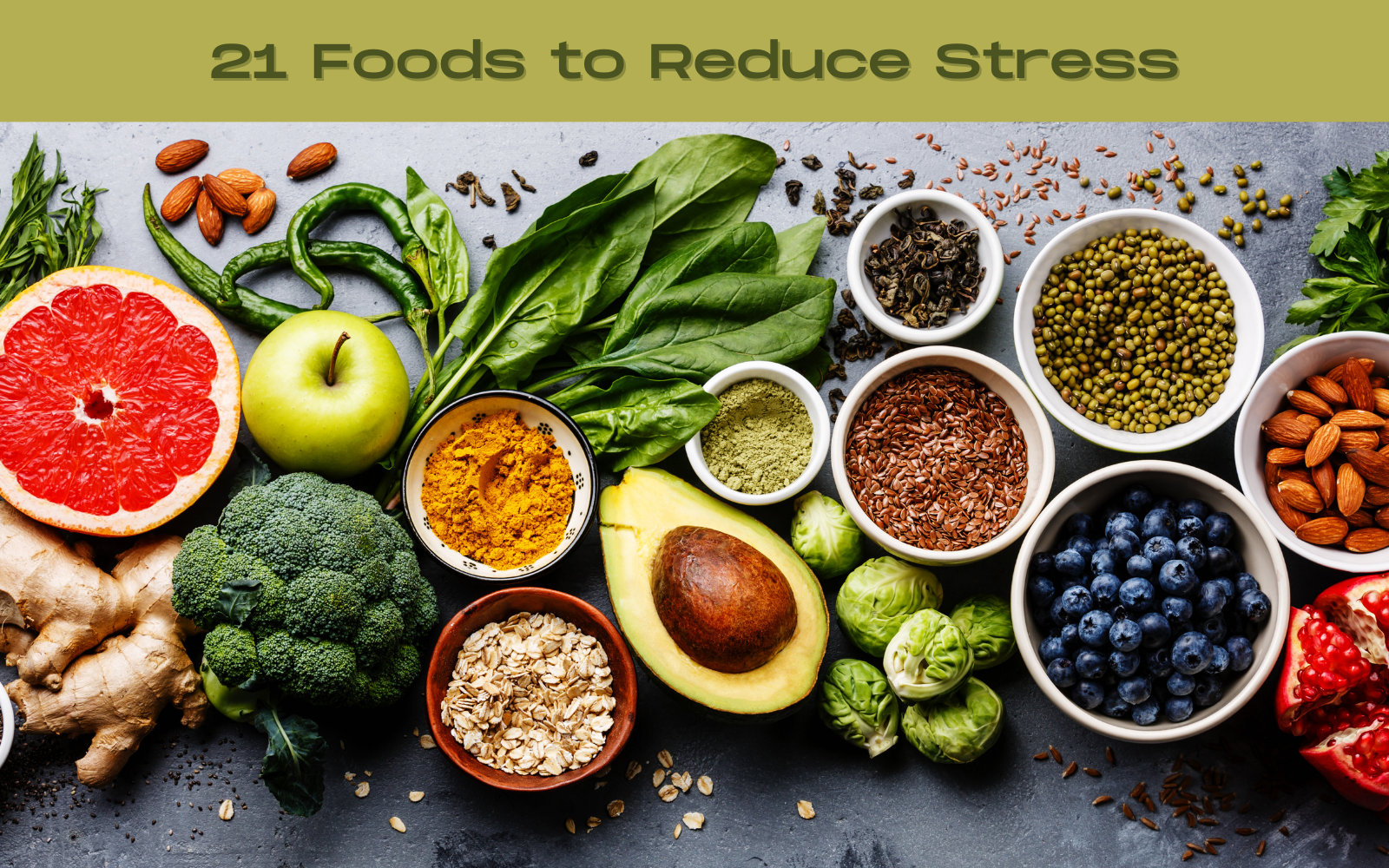
Whether cooking up a feast for the family or having a simple snack, the foods we choose have a significant impact on how we feel, both physically and mentally. Here is a rundown of foods from A to Z (mostly) and how their nutrients can help with stress relief. What kinds of stress-reducing meals can you cook up using some of the following ingredients?
Avocado: High in potassium to keep blood pressure low.
Broccoli: Like all cruciferous vegetables (cauliflower, brussels sprouts, kale, etc.), health benefits from vitamin C, folate, and sulforaphane have calming effects on the mind.
Chickpeas: Loaded with L-tryptophan, neurotransmitters that regulate mood, and proteins to boost mental performance
Dark chocolate: Releases serotonin and other neurotransmitters into the brain which can reduce the perception of stress.
Eggs: Contains amino acids that create serotonin to help regulate sleep, memory, and mood.
Fatty fish: (salmon, sardines, mackerel) The vitamin D and omega-3 fats are good for the brain, mood, and lowering anxiety.
Garlic: Contains sulfur compounds, which are antioxidants that increase glutathione levels for cellular health.
Honey: Naturally anti-bacterial and anti-inflammatory, also helps with falling asleep at bedtime.
Kale: (and spinach, swiss chard, other leafy greens) High in magnesium to control the release of cortisol in the body, preventing stress levels from spiking.
Lavender: Calming scent reduces stress and insomnia through aromatherapy or diet.
Mint: The soothing aroma can reduce feelings of fatigue and frustration.
Nuts: Contain antioxidants like zinc, vitamin E, and B vitamins to boost the immune system.
Oatmeal: Raises serotonin to calm the mind and cuts stress hormones like adrenaline and cortisol.
Pumpkin seeds: Good source of zinc, a mineral that, when deficient, can negatively impact mood.
Quince: An autumn fruit similar to a pear, high in electrolytes, antioxidants, and fiber, it can improve physical wellbeing related to hydration and digestion.
Raisins: Good source of iron for cardiovascular health. (Consume with vitamin C for better absorption if you follow a plant-based diet.).
Sunflower seeds: High in many stress-reducing nutrients, especially vitamin E which helps relieve depression.
Turmeric: The active ingredient (curcumin) reduces inflammation by boosting essential omega-3 fatty acids that reduce anxiety.
Valerian root: an herb that regulates nerve impulses to lower stress and improve sleep.
Water chestnuts: Not actually nuts, but aquatic tubers, these vegetables are high in potassium, antioxidants, B vitamins, and fiber, and help with heart health, immune health, and digestion.
Yogurt: The active, healthful bacteria in yogurt and other fermented foods have beneficial effects on gut health and brain health, reducing inflammation that can cause stress, anxiety, and depression.




